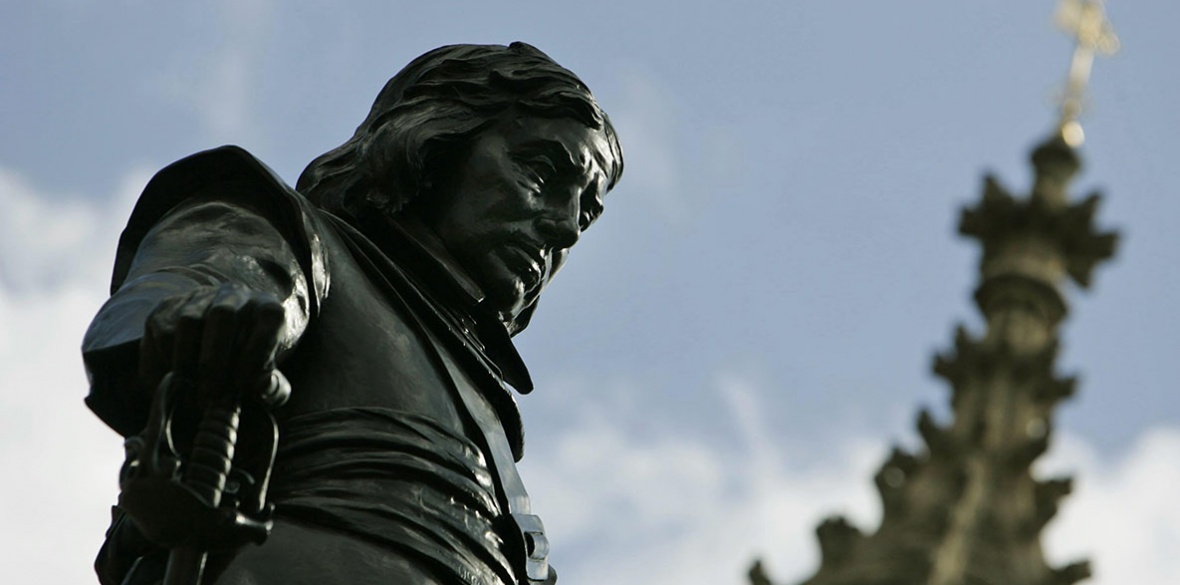This is the last article you can read this month
You can read more article this month
You can read more articles this month
Sorry your limit is up for this month
Reset on:
Please help support the Morning Star by subscribing here
VARIOUS members of the royal family have been in the news at the start of 2024 due to a range of health problems. Not for them, of course, the NHS but rather a private clinic in central London. Media coverage has been extensive but I can find no mention of another royal event.
January 30 in 2024 marked the 375th anniversary of the regicide that saw King Charles I executed in Whitehall for treason. Given that there is a powerful lobby on the Tory right that Our Island Story should be told in full and never added to or changed — a point made by Tory leadership contender Kemi Badenoch — this seems surprising.
Surprising that is until you start to look for historical reminders of the period between 1649 and 1660 when the country was run without the assistance of a monarch.
The despatch of King Charles ushered in the Commonwealth and the idea that Parliament, not the divine right of kings and queens, should decide what happened. It was the beginning of a modern parliamentary democracy (in fact since 1660 a constitutional monarchy).
It is an event and a period of time that rather cuts against the idea that nothing particularly exciting or dramatic ever happens in British history. The counterpoint perhaps is that the “Glorious Revolution” of 1688 which introduced a Bill of Rights and ensured that the settlement of 1660, such as it was, did not meet the standard of revolution that students of 1789 and 1917 might look for.
Oliver Cromwell who headed the post-1649 government died in 1658 and was succeeded by his son Richard.
There is a statue of Cromwell at Westminster that occasionally attracts complaints from royalists, but elsewhere the impact of the 11 years of parliamentary rule is hard to find.
In Peterborough, for example, at an impressive cathedral near Cromwell’s birthplace of Huntingdon, there is a historical panel that notes that parliamentary forces pulled down some of the edifice. Inside, however, there is simply a space covering 1649-60 when it comes to a record of the events of the 17th century.
However in 1660 the monarchy was restored and King Charles II dated the start of his reign from January 30 1649 in the first attempt to write the Commonwealth period out of history. That is probably a key reason why the day is neither marked nor taken as a national holiday as it certainly would be in France, for example.
You don’t need to be a republican to grasp that the moment when parliamentary democracy laid down its first roots is worth marking and a day off at the end of the bleak month of January would surely be no bad thing.
Of course history is complex and while England and Wales can rightfully celebrate the events of January 30 1649 as a democratic advance, in Ireland where Cromwell’s armies waged a bloody war things look rather different, while until 1707 Scotland had a different view of matters altogether.
The reality is that January 30 1649 and the period that followed is largely ignored by official British histories, even though it has been a key, if underplayed, dividing line in politics at least until the birth of the labour movement in the 1880s.
Whigs, Liberals, radicals and Chartists were on the side of remembering the regicide and why it happened. Tories were not and still are not.
While there is a strand of republican politics in the modern left the predominant view has been taken that issues like housing and health come before getting rid of the monarchy. Hence the first Labour government of 1924 bowed to the king as Keir Starmer no doubt will do later this year.
Keith Flett is a socialist historian.











